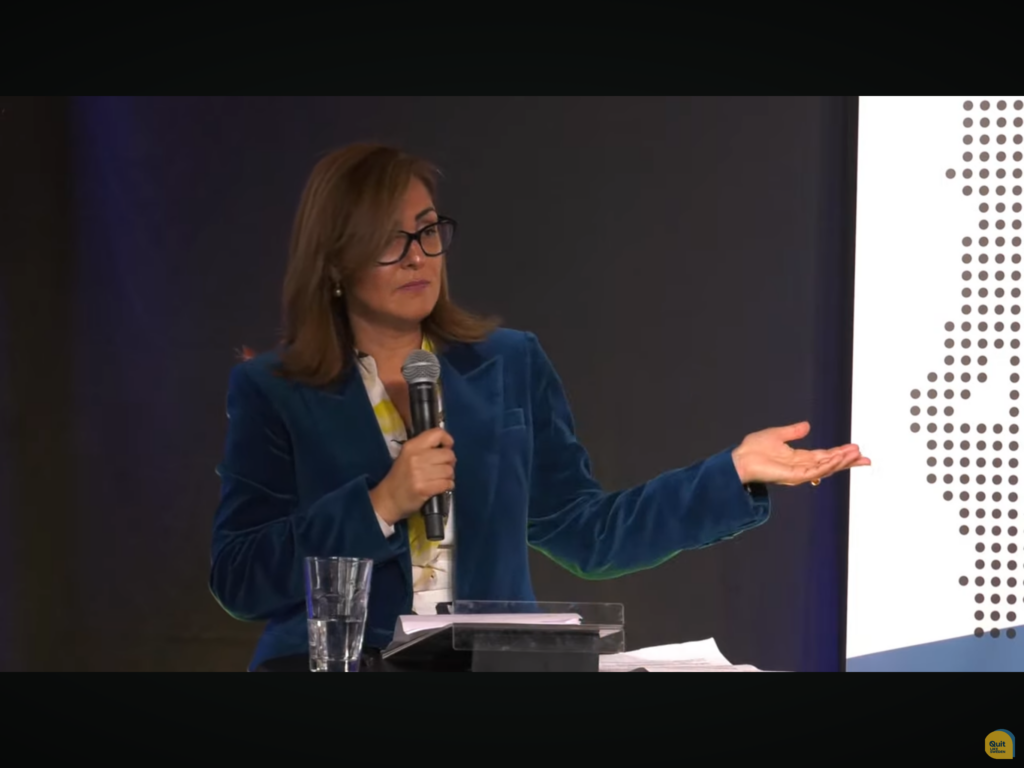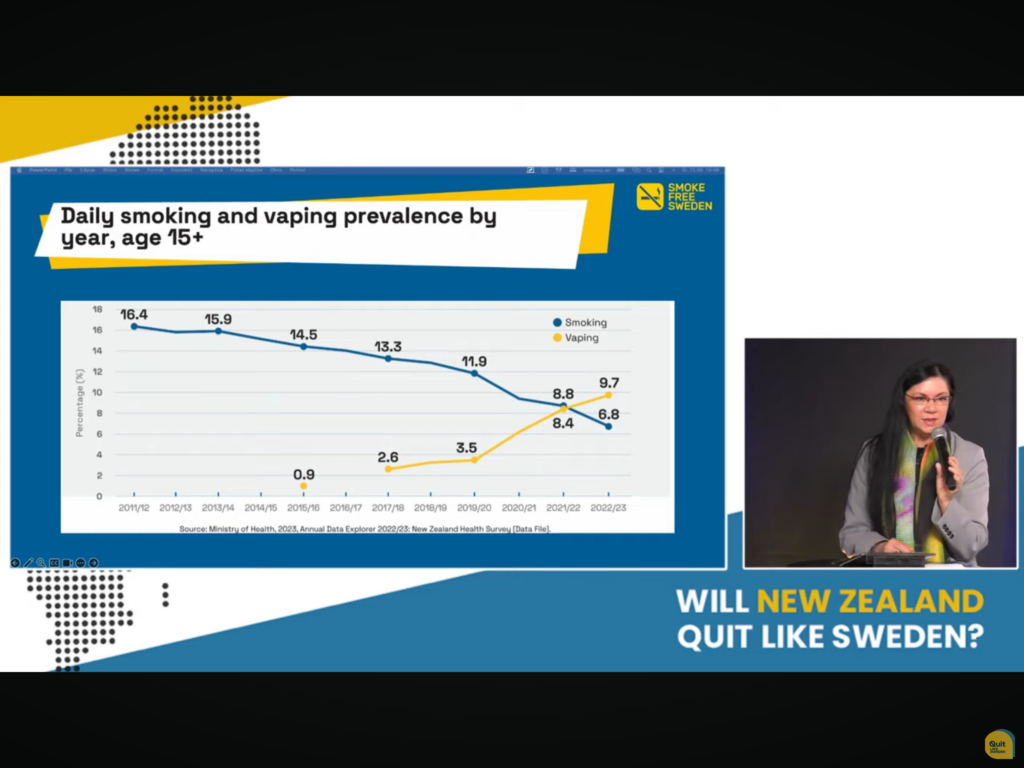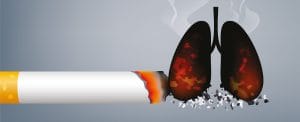On the occasion of the start of the GFN 2024 activities, the Quit Like Sweden platform hosted an event in Warsaw to discuss and draw insights from the successful smoking cessation strategies of New Zealand and Sweden
Yesterday, at Level 27 in Warsaw, the newly established Quit Like Sweden platform hosted the event “Will New Zealand Quit Like Sweden?”.
The meeting was organized to discuss and draw insights from the successful smoking cessation strategies of New Zealand and Sweden, and to explore what other countries can learn from their experiences.

“Quit Like Sweden is a platform with very big ambitions. As we know, Sweden is set to become the first nation to attain official ‘smoke-free’ status later this year,” explained Suely Castro, Director of QLS. “We encourage other countries to follow the Swedish example. It’s vital that countries can recreate the Swedish experience by adopting a comprehensive approach to tobacco control”.
Sweden is going to become the first nation to give up cigarettes: “Both the European Network for Smoking and To- bacco Prevention (ENSP) and the World Health Organization (WHO) consider countries to be officially smoke free when less than 5% of the adult population smokes tobacco. The European Union (EU) has tasked all its Member States with becoming ‘smoke free’ by 2040. Barring a dramatic shift in progress, most will miss this target by some distance”.
Understanding and replicating the Swedish experience means potentially saving millions of lives devastated by the scourge of smoking. The event on June 12 featured the participation of some of the most renowned international experts in the field of THR to discuss the lessons learned from Sweden and what can be done in the future.
To open the conference, dr. Marewa Glover, one of New Zealand’s leading tobacco control researchers that presented the report: “Roadmap to a Smoke-Free New Zealand”.
“I’m glad that finally the case of New Zealand verifies what we saw many years ago. So many lives could have been saved from disease and death if we had looked at the evidence and acted back then”.


The second session was dedicated to a “Comparative Insights: New Zealand and Sweden vs Australia”: experts from New Zealand and Sweden, including Professor Marewa Glover and Dr Anders Milton, former Chairman of the World Medical Association and Swedish Medical Association, discussed the approaches of both countries towards enabling smokers to choose alternatives instead. The experts will also compare those approaches to the one of Australia, together with Dr Colin Mendelsohn, Founder Chairman and adviser of the health promotion charity Australian Tobacco Harm Reduction Association (ATHRA).
The last two sessions were about the lessons that other countries can learn from the experience of Sweden and New Zealand and the consumer experiences, with a focus on accessibility, acceptability, and affordability of alternatives to cigarettes around the world
Present at the event, Jeffrey Zamora, President of ASOVAPE Costa Rica and Project Leader of the Veritas project, a research conducted by CoEHAR which will try to identify if there are any harmful effects of long-term regular vaping on respiratory health or other endpoints for people who never smoked.
“Quit like Sweden is a fabulous opportunity to analyze what has worked in countries like Sweden and New Zeland when it comes to smoking cessation and how, by providing less harmful alternatives to smoking and empowering consumers through accurate science-based information” stated Jeffrey “ we can get closer to the goal of being smoke-free (less than 5% prevalence). The Harm Reduction approach, as in other areas of health, like drug abuse prevention and sexual health, its proven to be a major public health benefit and the way to save millions of lives worldwide”.




